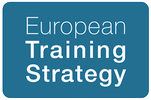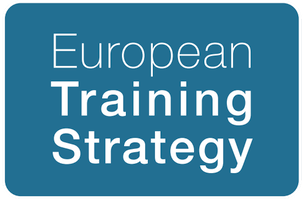

Levels of impact
levels of impact of the European Training Strategy
In the frame of the strategy, the focus is split into three impact levels. The micro level is referring to individuals’ competence development processes and learning spaces. The meso level is looking at the organisational development mechanisms. Zooming out, we get to the macro level which is focusing on systems and systemic frameworks.

Micro / Personal
Emphasises the provision of support to volunteers and paid professionals through strategic measures to equip them with the necessary competences and access to information, knowledge and training that enables them to perform effectively. The micro level is mainly about individuals’ competence development processes and learning spaces.

Meso / organisational
Looks at organisational development mechanisms: increase awareness, strategies, processes and procedures within youth work-related structures, ability to establish cooperation within the community of practice and between the different sectors (public, private and community). The meso level is about enabling and supporting.

Macro / systemic
Focuses on systems and systemic frameworks for the development of youth work: establish strategic alliances and create systemic conditions for the professionalisation and the development of youth work, enabling organisations, institutions and agencies across the youth work field to enhance their capacities. The macro level is about looking at systemic change and transformation.
The ETS competence models
a comprehensive system to support competence development
The European Training Strategy aims to have competence as a basis on which to prepare and support the youth workers and trainers, as well as the staff of the National Agencies of the EU Youth Programmes, who will have systematised guidance for their professional development, as well as proper support and appropriate investment.

Competence Model for Youth Workers
The competence model for youth workers acknowledges that youth work is becoming more and more international and aims to make these youth work settings more explicit. The model supports youth workers in assessing their own competences and identifying areas for further development. It also helps raise the quality of youth worker training and related youth worker competences in the field of youth, covering nine competence areas.
.
Competence Model for Trainers
The competence model for trainers acknowledges that the work of trainers is becoming more and more international and aims to make these training settings more explicit and supports trainers in assessing their own competences and identifying areas for further development. The model helps raise the quality of training programmes and related trainer competences in the field of youth work, covering seven competence areas.

The ETS courses
for trainers and youth workers working internationally
In the frame of the strategy, the SALTO Training & Cooperation Resource Centre, together with the network of National Agencies, organises a series of courses on the different competence areas and learning dimensions of the competence models. The courses support the competence development of youth workers and trainers as well as empowering them to use the models in their own practice, developing their own learning curricula.
Further reading
additional related resources
ETS endorses a role as strategic supporter that nurtures and inspires international, regional, and national processes. Find below a collection of additional resources from different stakeholders in the field of youth work and youth policy.
Explore the ETS more in depth
Explore the ETS more in-depth, through specific topics and different points of view from our experts and the different stakeholders of the ETS.

Explore the terms in the Glossary
Who is a youth worker? What do we mean when we say competence development? Explore our curated list of terms, defining various elements mentioned through these materials. These definitions are the basis for all the resources provided through the ETS.

Additional Resources
from the extended network

Youthpass
Youthpass is the recognition instrument developed for the projects realised in the European youth programmes. Through the Youthpass certificate, participation in such projects can be recognised as an educational experience and a period of non-formal and informal learning. Youthpass foresees a process applied throughout the project life-cycle to support the learning of participants. It also serves as a strategy that improves the recognition of non-formal learning in Europe.
FOCUS learning
The project FOCUS Learning tackles the different learning perspectives throughout youth work. The project combines a theoretical publication and various practical tools with regularly published content aiming to open discussions on the topic of learning from various angles in the field.


SALTO website and related tools
The SALTO Network is composed of 11 resource centres working on European priority areas within the youth field, the field of education & training as well as cross-sectorial, providing learning resources, organising training and contact-making activities to support organisations and National Agencies (NAs) within the frame of the European Commission’s Youth Programmes and beyond.



